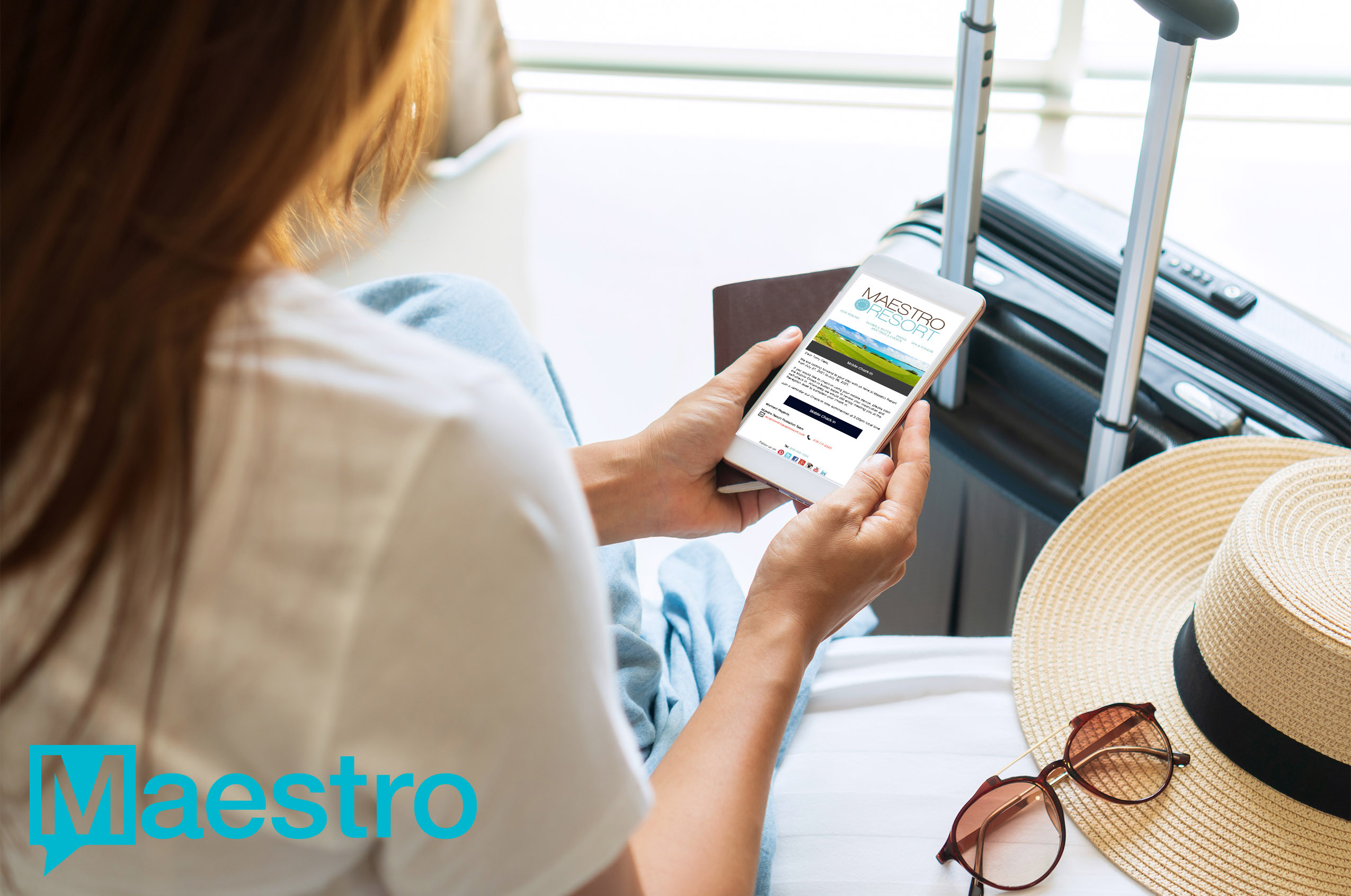Hotel & Resort operators do not need a mobile app to facilitate guest engagement and a mobile check-in experience; High-touch guest interactions can be streamlined via browser-based web applications, text messaging, and email communications leveraged from their property-management system

The hotel business is not getting simpler any time soon, but independent hotels are still able to compete on a level playing field against properties with support from larger brands. Investing in new technology is often a challenge with operators trying to control margins in an economy that just began to rebound. Fortunately, many of the capabilities that would aid independent hotels most are already baked directly into the hotel’s property-management system.
For example, guests have been calling for a more streamlined check-in process for some time, but only a limited number of hotels are offering a mobile check-in experience. One of the biggest misunderstandings about mobile check-in is that a mobile app is required to facilitate the interaction. While a mobile app is required to meet the hardware requirements of digital door locks, the rest of the digital guest journey can be addressed without downloading any mobile app by using a web app accessed by the guest via direct web links through pre-arrival communications from the hotel PMS. Without directing guests to install an app, which many travelers are reluctant to do, hotels have an opportunity to enhance the guest experience using information already available in the PMS. The key is a Web Browser based mobile application, test messaging and dynamic guest email communications. By directly contacting guests through the technology channels they already use, operators can provide high-touch interactions in a contactless environment.
Using these channels, hotels can quickly provide direct links to any part of the hotel experience, starting at check in. Notifications can be automated or pushed directly through email or text message up to 48 hours prior to the guests arrival. This enables hoteliers to confirm pre-arrival, and whether they have transportation or other needs. Hotels without BLE enabled electronic locks (needed for mobile key) can provide a pre-encoded key for pick up at an electronic kiosk or pre-arranged pick up location to allow for a contactless experience, regardless of door technology.
Talk the Talk
Operators are continuing to be tested by a challenging labor market where demand for rooms is outpacing hotels’ ability to service them. In this environment, communication has become the new focus for hotel technology. Staff-facing technology has taken hold across the industry with fewer hands on deck. Once again, with limited room to experiment with technology these needs can be met through a web app or browser-based operations or text-messaging technology, allowing any hotelier to take advantage of them.
Staff-facing communication tools have impacted every area of hotel operations, from the front desk and concierge to housekeeping and even spa services. Through access links provided via the hotel PMS, housekeepers can quickly check the status of every room on property, which areas of the hotel to prioritize, and even alert them to emergencies, all on their own mobile devices responsive design applications.
Most importantly, text-based communications cut down on time spent communicating with guests or hotel associates. Text-based communications tend to provide more accuracy in less time than direct conversation, and for associates it provides a clear chain of accountability. This is critical if hotels want to meet their goal of providing a high-quality guest experience with fewer employees.
Make it Simple
So much of this process is automated on the hotel’s side, but some aspects of mobile communication have a slight learning curve. Fortunately, email and text messaging are familiar to both guests and hotel associates. This familiarity allows hotels to leverage new technology in a way that embraces existing behaviors without relying on new ones. This makes adoption easy at a time when communication and nimble operations are a priority.
Since this technology is accessible directly from the hotel PMS, the biggest barrier to its implementation is operational. There is a fear of technology that persists in hospitality at a time when it has become a necessity. Implementing new technology can be challenging and initially a distraction from serving guests, however; it is clear from Hoteliers we speak to daily that guests have come to expect a certain level of service and responsiveness that is only possible through technology.
The ability to interface with guests’ devices has grown in popularity due to social distancing requirements, but today it has transformed into a competitive advantage. It could be a way to reach guests in the way that is most familiar to them, or an avenue for operational improvements. The best part is, hoteliers can leverage their existing PMS to make any of this possible, up to any level of digitization they deem important.
If communication is a part of hospitality, it is time to consider the ways discourse has evolved and interact with guests on their terms. Mobile technology has the potential to improve the industry in ways that were once considered impossible, and the timing is right for both guests and associates to take advantage of it. The only thing separating hotels from competing in this new digital environment is taking the first steps to bring mobile technology to their guests as part of their competitive advantage.
About the Author
Warren Dehan is the President of Maestro, the preferred cloud and on-premises browser based PMS solution for independent hotels, luxury resorts, conference centers, vacation rentals, and multi-property groups. Maestro was first to market with a fully integrated Windows PMS and Sales & Catering solution and is continuing that trend with leading edge web and mobile based solutions. Platform and deployment independence present Maestro as an investment that will continue to grow and adapt as new technologies emerge
